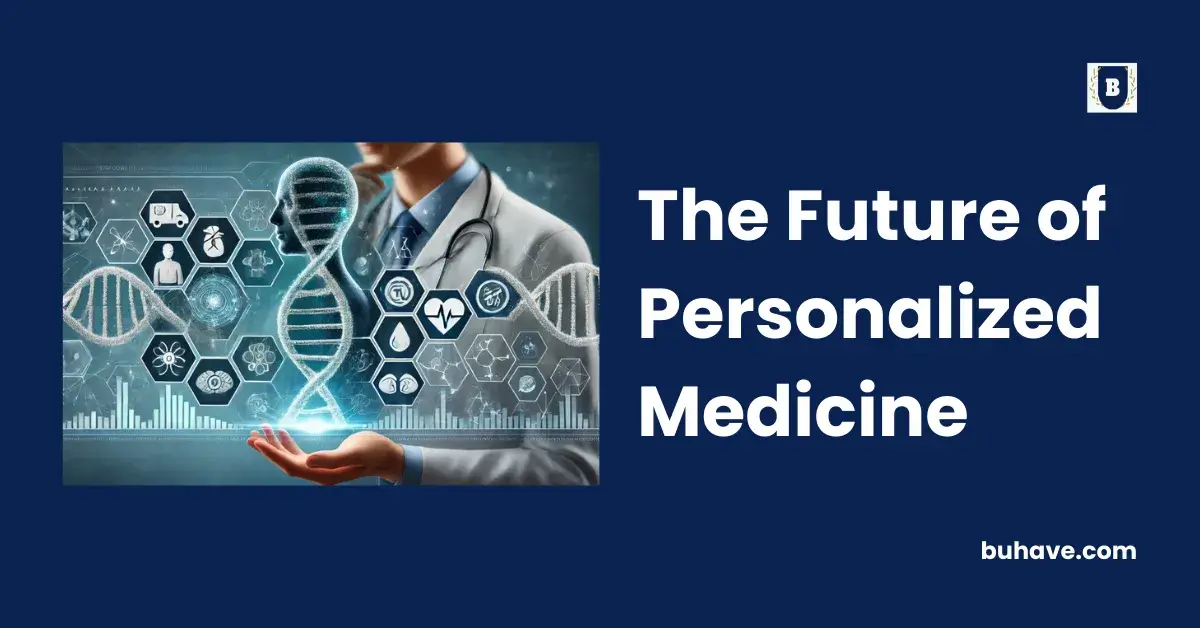In the ever-evolving healthcare landscape, one concept stands out as a beacon of hope and innovation: personalized medicine. This groundbreaking approach holds the promise of tailoring treatments to individual patients based on their unique genetic makeup, lifestyle factors, and medical history. As medical professionals, it’s imperative to delve into the intricacies of personalized medicine, exploring its potential impact on healthcare delivery and patient outcomes.
Understanding Personalized Medicine:
At its core, personalized medicine represents a paradigm shift in healthcare, moving away from the traditional one-size-fits-all approach towards precision medicine tailored to each patient’s needs. Central to this approach is genetic testing, which provides invaluable insights into an individual’s genetic predispositions, susceptibility to diseases, and potential response to treatments. By analyzing genetic markers, healthcare providers can identify risk factors early, allowing for proactive interventions and personalized preventive strategies.
Harnessing the Power of Genetic Testing:
“Genetic testing serves as the cornerstone of personalized medicine, offering a glimpse into the intricate genetic makeup of each patient. Through techniques like next-generation sequencing, healthcare professionals can uncover hidden genetic variations that may influence disease development and treatment outcomes. Armed with this knowledge, clinicians can design targeted therapies to address specific genetic mutations or biomarkers, optimizing treatment efficacy and minimizing adverse effects”. Says Allen Seavert, Director of American TMS Clinics.
Empowering Patients Through Personalized Care:
One of the most significant advantages of personalized medicine is its potential to empower patients in their healthcare journey. By involving patients in the decision-making process and providing them with personalized treatment plans based on their genetic profile, healthcare providers can foster a sense of ownership and autonomy. This patient-centered approach not only enhances treatment adherence but also improves patient satisfaction and overall quality of care.
Transforming Healthcare Delivery:
“The integration of personalized medicine into healthcare delivery models holds the promise of revolutionizing the way we approach patient care. By leveraging advancements in technology and data analytics, healthcare providers can streamline the delivery of personalized treatments, optimizing resource allocation and improving efficiency. Additionally, personalized medicine enables healthcare systems to shift towards preventive care models, focusing on early detection and intervention to mitigate disease progression and reduce healthcare costs in the long term”. Says Sarah Jeffries, a Mental Health First Aid Trainer at First Aid Courses Manchester
Challenges and Considerations:
While the potential benefits of personalized medicine are undeniable, its widespread adoption presents certain challenges and considerations. One of the primary hurdles is the need for robust data infrastructure and interoperability standards to facilitate the seamless sharing of genetic and clinical data across healthcare systems. Furthermore, ethical and privacy concerns surrounding genetic testing and data security must be addressed to ensure patient trust and compliance.
The Road Ahead:
As we navigate the future of personalized medicine, it’s essential to embrace innovation and collaboration across disciplines. Medical professionals, researchers, policymakers, and industry stakeholders must work hand in hand to overcome barriers and unlock the full potential of personalized medicine. Through continued investment in research, education, and infrastructure, we can pave the way for a healthcare system that prioritizes individualized care, improves patient outcomes, and ultimately transforms lives.
Conclusion:
In conclusion, personalized medicine represents a transformative approach to healthcare, offering tailored treatments that cater to the unique needs of each patient. By harnessing the power of genetic testing, targeted therapies, and patient-centered care, we can usher in a new era of precision medicine that revolutionizes healthcare delivery and improves patient outcomes. As medical professionals, we must embrace innovation, address challenges, and champion personalized medicine as a cornerstone of modern healthcare. Together, we can shape a future where every patient receives the personalized care they deserve.

